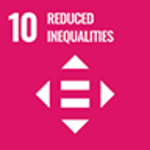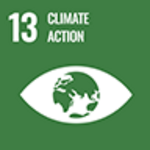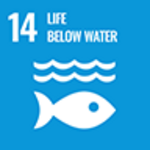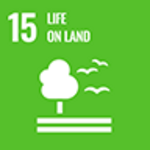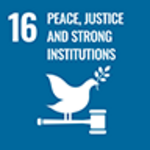
Professor Hiroshi Oda
Affiliation: Graduate Faculty of Humanities and Human Sciences (School of Humanities and Human Sciences Faculty of Letters)
Specialized field: Cultural anthropology
Keywords of research: peace studies, colonialism, others, ethnography, living nature
Alma mater: Takamatsu High School (Kagawa Prefecture)
Final education: Heidelberg University School of Medicine (Germany)
HP address: http://skyandocean.sakura.ne.jp/
*This article was originally published in the 4th issue of "Frontiers of Knowledge" and has been re-edited for the web.
What is cultural anthropology?
Our distant ancestors appeared in Africa about 7 million years ago. It branched into several species and became Homo sapiens about 200,000 years ago. After that, mankind embarks on a journey that spreads across the globe. On a timescale of 100,000 years, we are all 'Africans'. There are various environments on the earth. Cold places, hot places, dry deserts, rainy jungles, high mountains, the sea. . . Humans have been able to adapt to these diverse environments by making full use of their cultural abilities. Anthropology is a field that studies millions of years of human history as it unfolds on Earth. Among them, cultural anthropology aims to clarify the diversity of human culture. Cultural anthropology conducts research using a methodology called ethnography. There is a saying, “A picture is worth a thousand words,” but you have to actually go to the site, see it with your own eyes, and experience it. The modern significance of this field lies in acquiring knowledge rooted in the field, promoting understanding of others, and cultivating an attitude of respect for human diversity.
What kind of research are you doing specifically?
My research to date can be positioned as an anthropological approach to peace research. The main field of investigation was the place concerned with Germany. Germany (1933-1945), when the Nazis came to power during World War II, destroyed the peace by persecuting and aggression against different ethnic groups. Especially notorious is the Holocaust, the genocide against Jews and Sinti Roma. After the war, German citizens made reconciliation with their former "enemies". One of the leaders of this movement is a citizen's group called Actions, Signs of Atonement, and Peace Service. I participated in the organization's activities and conducted repeated interviews, trying to understand what was important in building reconciliation and peace from below. I attended a summer camp held in the ruins of a Czech concentration camp, interviewed a Jewish Holocaust survivor, and visited the town of Dresden to meet a German volunteer in Prague. I found something interesting in it. It means that what seems to be just a trivial thing will lead to great peace. The German volunteer said that “cleaning windows and listening” were important. It is said that he listened to the experiences of persecution that they had undergone while working as window cleaners in the homes of elderly Jewish people. His "listening ears" opened the hearts of the elderly and he was welcomed into the Jewish community of Prague. Even though he was the grandson of a Nazi cultist! To listen to the voices of others. To be able to feel the pain as one's own. These two seem to be the basis for changing the previously confrontational relationship and creating a more human and peaceful connection. Compassion is the ability to perceive the pain of others, and I believe that when a place is properly opened in society to nurture an ear to listen and compassion, the path that leads to greater peace will also be opened. got it.


What are you aiming for in the future?
My current research theme is peace based on colonial history. Germany had colonies abroad during the Second Empire (1871-1918). A colony is to seize the land where people live as their own and make it an object of control. Then the indigenous people of the land rise up in resistance. Wars of resistance broke out in Namibia and Tanzania in Africa, which Germany had once ruled over as colonies, and the German army tried to exterminate entire ethnic groups and set up concentration camps in order to suppress them. The same outrages that the Nazis did in the Holocaust were committed in Africa at another time. Germany was not the only country to rule over different peoples through colonialism. England, France, America, etc. Since the Meiji era, Japan has also been subject to colonial rule, including the Ainu people of Hokkaido. However, peace based on colonial history has not been sufficiently addressed. "Nature" has emerged as a key word in this context. Colonists have been discriminated against because they are close to "nature." Therefore, the separation of “nature/culture” is assumed. However, the idea of separating humans from nature, and of thinking that “culture and civilization” advances the further away one is from nature, is the result of, for example, the global environmental destruction that has become a problem in recent years. How can we reconnect with living nature? I would like to think about this fundamental question while standing in the field.
Reference book
- Hiroshi Oda, "Introduction to Ethnography - Qualitative Research on <Gemba>", Shunjusha (2010)
- Hiroshi Oda, Yuji Seki (Editor), "Anthropology of Peace" Law Bunkasha (2014)

















